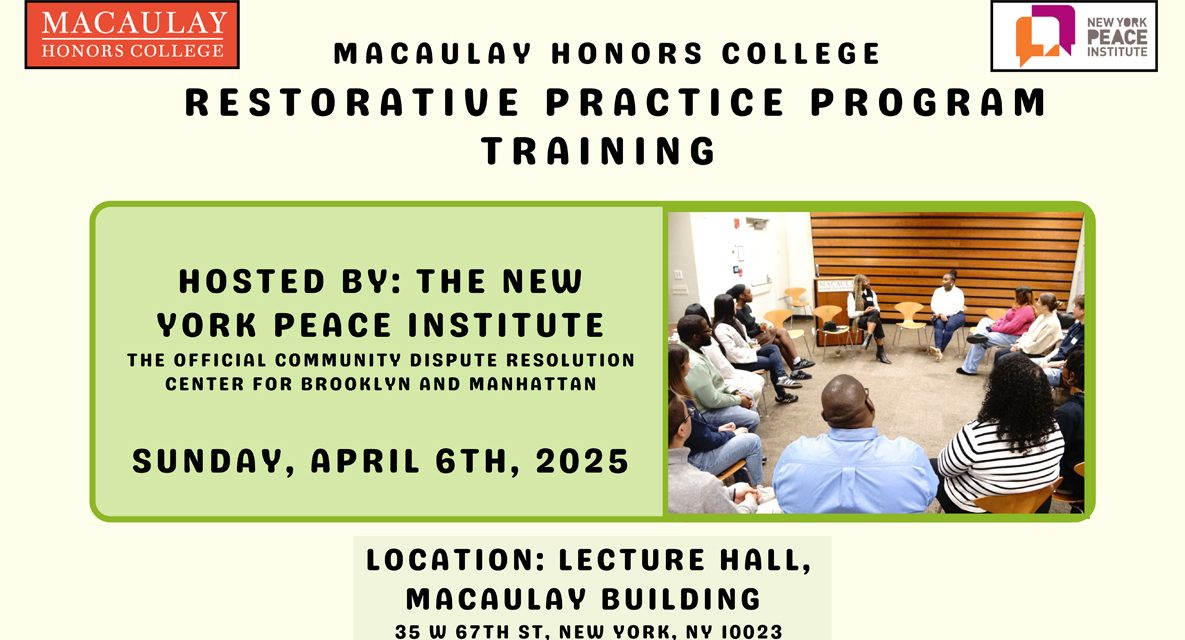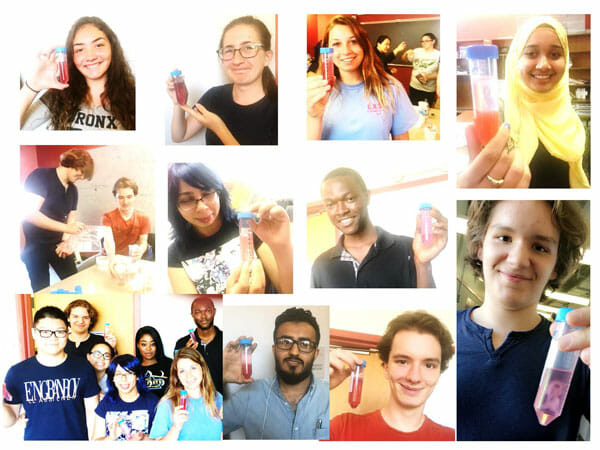This April, New York Peace Institute, the official community dispute resolution center for Brooklyn and Manhattan, is partnering with the Macaulay Honors College to offer a three-hour Restorative Justice and Restorative Practices Training open to all Macaulay and CUNY students.
Location: Lecture Hall, Macaulay Building
Dates: April 6th
Time: 2:00pm to 5:00pm
Fee: FREE
Registration is easy! register to attend here
Or event link: https://macaulay.campusgroups.com/admin/rsvp_boot?id=2138602
Why take this training?
For decades, college campuses have served as a hub for young people to organize and advocate for change around issues of social justice and inequality. Often conflicts or issues that are challenging society become exacerbated on college campuses as the high-stakes, academic, and social environment can act like a microcosm of the world. NYPI believes it is important to equip the next generation with the capacity and skills to hold space for their peers to discuss difficult topics and build meaningful relationships. Through this training, we hope to expose young people to a new approach to justice and develop their facilitation skills so that they can use these practices in their communities. It is our goal that college students across the city can connect and bring these practices back to their campuses to facilitate more community dialogue and create a shift around how we respond to conflict and harm. Circles, a central process of Restorative Practices that hinges on storytelling and equalizing hierarchy, can be used to build relationships, welcome new members into community, resolve conflict, and share skills and knowledge. As more college campuses across the country become fractured due to differing beliefs or clashing values, NYPI hopes circles can be used, through student organizations or University programs, to remind us that we live interconnected lives and, thus we owe each other and our community’s compassion, accountability, and dialogue.
Our training will explore the fundamentals of Restorative Justice and Restorative Practices, including affective language, active listening and circles. participants explore conflict and how to use Restorative Justice to respond to different kinds of harm using circles and conferencing















